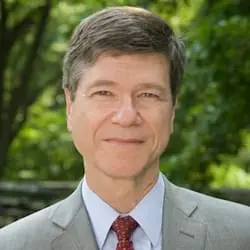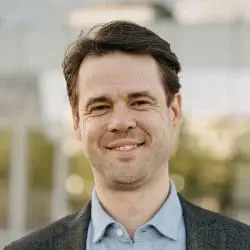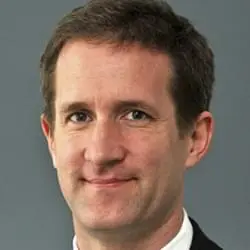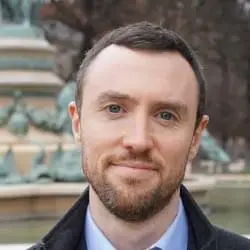More details
About the Authors
Prof. Jeffrey Sachs
Director, SDSN; Project Director of the SDG Index

Jeffrey D. Sachs is a world-renowned professor of economics, leader in sustainable development, senior UN advisor, bestselling author, and syndicated columnist whose monthly newspaper columns appear in more than 100 countries. He is the co-recipient of the 2015 Blue Planet Prize, the leading global prize for environmental leadership, and many other international awards and honors. He has twice been named among Time magazine’s 100 most influential world leaders. He was called by the New York Times, “probably the most important economist in the world,” and by Time magazine, “the world’s best known economist.” A survey by The Economist in 2011 ranked Professor Sachs as amongst the world’s three most influential living economists of the first decade of the 21st century.
Professor Sachs serves as the Director of the Center for Sustainable Development at Columbia University. He is University Professor at Columbia University, the university’s highest academic rank. During 2002 to 2016 he served as the Director of the Earth Institute. Sachs is Special Advisor to United Nations Secretary-General António Guterres on the Sustainable Development Goals, and previously advised UN Secretary-General Ban Ki-moon on both the Sustainable Development Goals and Millennium Development Goals and UN Secretary-General Kofi Annan on the Millennium Development Goals.
Dr. Christian Kroll
Senior Expert, Bertelsmann Stiftung; Scientific Co-Director of the SDG Index

Dr. Christian Kroll is Scientific Co-Director of the SDG Index, and Senior Expert for Sustainable Development at Bertelsmann Stiftung. He gained a PhD from the London School of Economics with a thesis entitled “Towards a Sociology of Happiness” and authored articles in scientific journals spanning several disciplines, as well as numerous policy-oriented reports. His publication “Sustainable Development Goals: Are the rich countries ready” with a foreword by Kofi Annan featured the prototype SDG Index (for OECD countries). Christian is a Guest Lecturer at the Hertie School of Governance in Berlin where he developed the country’s first university course on the SDGs. Previously, he taught at the LSE and held academic positions at the Harvard Kennedy School of Government as well as Jacobs University. His research was featured by national and international media such as the Harvard Business Review, Washington Post, Le Monde, Die Zeit, ARD, Spiegel Online and others. Christian was honored as a Young Global Leader by the World Economic Forum.
Contact: Email / Twitter / Web
Dr. Guido Schmidt-Traub
Executive Director of SDSN; Scientific Co-Director of the SDG Index

Dr. Guido Schmidt-Traub is Scientific Co-Director of the SDG Index, and Executive Director of the UN Sustainable Development Solutions Network. He serves on the Governing Council of Future Earth and other advisory bodies. Previously, Guido was CEO of Paris-based CDC Climat Asset Management; climate change advisor to the Africa Progress Panel secretariat; and Director and Partner at South Pole Carbon Asset Management in Zurich. He managed the MDG Support Team at UNDP (2006-2008) and served as Policy Advisor and then as Associate Director of the UN Millennium Project in New York, which was tasked with developing an action plan to achieve the Millennium Development Goals and advised countries around the world on their implementation. Guido holds a Ph.D. in Economics from Wageningen University & Research, an M.Phil. in Economics from Oxford University (Rhodes Scholar), and a Masters in physical chemistry from the Free University Berlin.
Guillaume Lafortune
Manager, SDG Index, Paris

Guillaume Lafortune is the SDG Index Manager of the UN Sustainable Development Solutions Network. He has served as an economist at the Organisation for Economic Co-operation and Development (OECD) working on public governance reforms and statistics. He was one of the lead advisors for the production of the 2015 and 2017 flagship statistical report Government at a Glance. He also contributed to analytical work related to public sector efficiency, open government data and citizens’ satisfaction with public services. Earlier, Guillaume worked as an economist at the Ministry of Economic Development in the Government of Quebec (Canada). Guillaume holds a M.Sc in public administration from the National School of Public Administration (ENAP) in Montreal and a B.Sc in international economics from the University of Montreal.
Contact: Email
Grayson Fuller
Analyst, Paris

Grayson Fuller joined the Paris Secretariat as the SDG Index Analyst. His role consists of managing the data, coding, and statistical analyses for the SDG Index and Dashboards report. He additionally carries out research related to sustainable development. Grayson received his Masters degree in Economic Development at Sciences Po Paris. He holds a Bachelors in Latin American Studies from Harvard University, where he graduated cum laude. Grayson has lived in several Latin American countries and speaks English, Spanish, French, Portuguese, and Russian. He enjoys playing violin and hails from Atlanta, GA.
Contact: Email
About the Publishers
Bertelsmann Stiftung
The Bertelsmann Stiftung is one of the largest foundations in Germany. It works to promote social inclusion and is committed to advancing this goal through programs that improve education, shape democracy, advance society, promote health, vitalize culture and strengthen economies. The Bertelsmann Stiftung is a non-partisan, private operating foundation.
Sustainable Development Solutions Network (SDSN)
The Sustainable Development Solutions Network (SDSN) has been operating since 2012 under the auspices of the UN Secretary-General. SDSN mobilizes global scientific and technological expertise to promote practical solutions for sustainable development, including the implementation of the Sustainable Development Goals (SDGs) and the Paris Climate Agreement.
Acknowledgements
We are grateful to Jorge Moreno Membrillera (SDSN) for statistical support. This report has benefited from extensive advice from members of the SDSN Leadership Council. They serve in their personal capacities, so the opinions expressed in this paper may not reflect the opinions of their host institutions. Members are not necessarily in agreement with every detail of this report.
The report has also benefited from valuable contributions from James Gomme (World Business Council on Sustainable Development), Sami Pirkkala and Riina Pursiainen (Prime Minister’s Office of Finland). We are also grateful to the European Commission’s Joint Research Centre (JRC) for the recommendations provided as part of the statistical audit of the report. In particular, we would like to thank the experts from the Competence Centre on Composite Indicators and Scoreboards (COIN) including Michaela Saisana, Eleni Papadimitriou, Ana Neves and William Becker.
The report brings combines data and analyses produced by international organizations, civil society organizations, and research centers. We want to thank all the researchers for their contributions and collaboration in producing the report. The full list of contributing organizations is available in the section on “References.”
We would also like to thank the regional and national SDSN networks, experts, and government officials for responding to the survey on “national implementation and coordination mechanisms for the SDGs at the Central/ federal level.”
María Cortés-Puch, Elena Crete, Ryan Swaney, and Benjamin Stappenbeck provided communication support for the launch of the report. Liana Fair Mehring and Bluebery Planterose provided editorial comments. Roberto Rossi (PICA Publishing) prepared the manuscript for publication. We thank all staff members at SDSN, its member institutions and Bertelsmann Stiftung who have supported this report.
The views expressed in this report also do not reflect the views of any organizations, agencies or programmes of the United Nations.
